| Ben Whiteside, University of Bradford |
Ben Whiteside is the Director of the RKT Centre for Micro and Nano Technology at the University of Bradford. His research creates new manufacturing routes for ultra-precision devices using a wide range of polymer-based materials. Application areas include medical devices, optics and mechanical components.
|
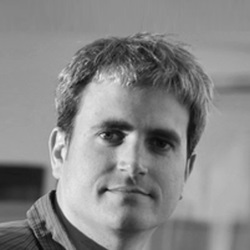
|
| Carla Flosky, University of Bremen |
My scientific work carried out as research assistant focuses on micro grinding and micro injection moulding. During the last years, I executed research projects in both fields, of which one was a European project about micro milling and micro injection moulding of medical micro parts and a German project on the subject of a novel micro grinding system for desktop machines. The focus of the PhD is the analysis of ductile and brittle machining in micro grinding of technical ceramics, namely alumina and zirconia. In order to further promote material removal, novel grinding tools based on a polymeric bonding system as a soft and elastic tool and an additional force controlled grinding process. |
 |
| Chris Valentin Nielsen, DTU |
The research includes the combination of numerical modeling and experimentation applied to manufacturing processes within metal forming and joining. Among joining processes, the major topic has been resistance welding including spot welding and projection welding. The related 3D electro-thermo-mechanical numerical developments have been commercialized by a collaborating company. Tribology has been the main topic within metal forming, where high normal pressures, local deformation and changes of the surface topography influence the friction. Friction modeling has been enhanced by including the effect of local strain hardening and subsurface deformation on the prediction of the real contact area between tool and workpiece. As subsurface deformation increases, the real area of contact and consequently the friction increase rapidly. Related to MICROMAN, as supervisor of the ESR project 12, recent work includes electro-thermo-mechanical modeling of porous material, which is used to simulate electro-sinter-forging (ESF).
|
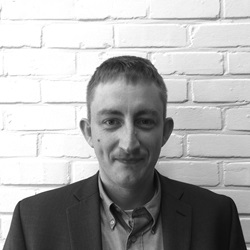 |
| Giuliano Bissacco, DTU |
Giuliano Bissacco is Associate Professor of Tooling Technologies at the Department of Mechanical Engineering of DTU. He has more than 15 years of research experience in micro and precision manufacturing. He is lecturer of micro and precision machining and process chains at DTU Mechanical Engineering and responsible of the DTU PhD Summer School on Micro Manufacturing. |

|
| Prof. Dr.-Ing. Henning Zeidler, Technische Universität Bergakademie Freiberg |
Henning Zeidler was born in 1979; he studied Microtechnics and Mechatronics at Technische Universität Chemnitz in Germany, where he also obtained his PhD in mechanical engineering in 2012.
From 2012 to 2017 he was chief executive engineer of the professorship Micromanufacturing Technology at Technische Universität Chemnitz. Since 2013 he is chairman of the board of Beckmann-Institute for Technology Development and co-founder of the AMtopus GmbH&Co.KG in Chemnitz, Germany. Since 2017 he holds the chair in Additive Manufacturing at Technische Universität Bergakademie Freiberg.
His research foci are Additive Manufacturing processes including e.g. bio based materials, binder jet printing and direct metal deposition as well as surface functionalisation, for example using Plasma electrolytic Polishing. Additionally, he has been working on micro- and precision machining using EDM, ECM and hybrid processes such as ultrasonically assisted micro EDM for many years.
The combination of the AM process chain is his current target, using Plasma electrolytic Polishing to smoothen the surface of metal additively manufactured parts. WP leader of WP 3 until recently.
|
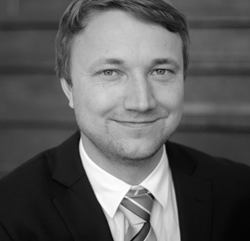
|
|
Associate Professor, Massimiliano Annoni, Politecnico di Milano
|
Massimiliano Annoni carries out and manages research activities in mainly two fields: Waterjet machining and Micromachining. The research activity related to the water jet/abrasive water jet (WJ/AWJ) technology has regarded different and new applications of water jet machining such as: rapid prototyping by WJ, WJ decoating, natural stones cutting, polymeric additives, pure water cutting of soft materials. He founded a start-up company called WatAJet (a spin-off of Politecnico di Milano). About micromachining, he founded MI_crolab in 2008 with the purpose of carrying out basic and applied research in the field of mechanical micromachining. He has been involved in several national and European research projects and he is the author of more than 90 research papers. |
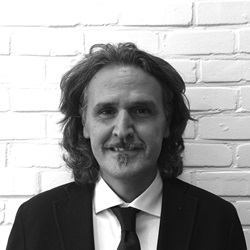
|
|
PhD, Paolo Parenti, Politecnico di Milano
|
Paolo Parenti is currently carrying out research activities in the micromachining field at the MI_crolab in Politecnico di Milano. During his PhD, in the period 2010-2014, he was involved in studying the dynamic behaviour and modelling of grinding operations for industrial applied applications. Since 2014/2015 he is focusing his activities in micromanufacturing and micromachining fields, developing experimental and theoretical frameworks for analysing the quality of complex micromilled features. He also studied numerical modelling of chip formation, characterization of micro tool wear, machining of difficult-to-cut and innovative materials with non-standard micro tools. He is also involved in the frame of the EFeSTO project (Extrusion of Feedstock for the manufacturing of Sintered Tiny Objects with a parallel kinematics machine @ Politecnico di Milano), as a step towards hybrid machining involving additive manufacturing. He is author of more than 25 research papers. |
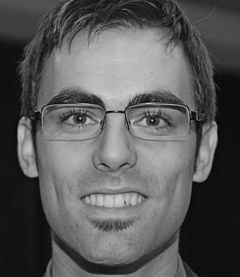
|
| Research Associate Walhyudin P. Syam, University of Nottingham |
Wahyudin P. Syam was born in Patani-Gebe, Maluku, Indonesia. He obtained a Ph.D. degree in mechanical engineering from Politecnico di Milano, Milano, Italy, in 2015. His PhD topic was performance verification and measurement uncertainty analysis of optical coordinate measuring machine under the supervision of Prof. Giovanni Moroni and Prof. Stefano Petrò. During his PhD, he experiences with ISO 10360 and ISO 15530 series.
Since 2015, he is a research fellow in Manufacturing Metrology Team (MMT) at The University of Nottingham, UK. His current project is development and manufacturing of precision optical micro-CMM incorporating the Information-Rich Metrology (IRM) principle for the use of form and surface texture measurement. In addition, he is working in lattice design and additive manufacturing for metrology frame. His main research fields are: metrology of geometry (form) and surface texture, precision instrument design and additive manufacturing.
Wahyudin is a member of EUSPEN and is a CIRP Research Affiliate (UK representative).
|
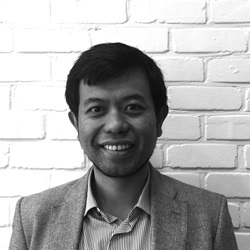
|